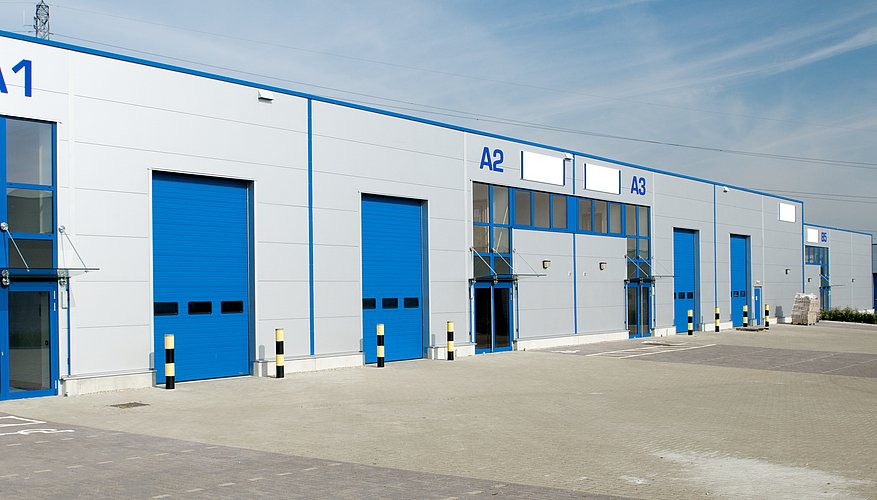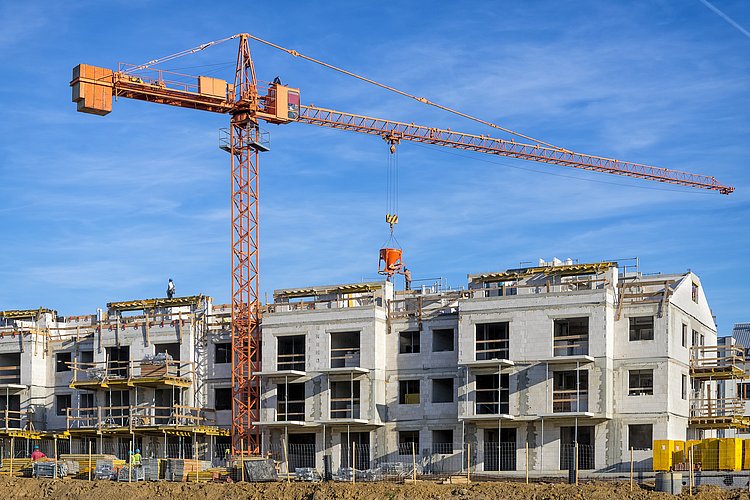The coalition agreement between the CDU, CSU, and SPD – real estate law aspects
Update Real Estate & Construction 3/2025
Entitled "Responsibility for Germany," the coalition agreement between the CDU, CSU, and SPD has been published and contains the political guidelines for the 21st legislative period. The coalition agreement also provides for new regulations for the real estate industry, but only creates limited incentives for investment. We summarize the specific changes that the coalition agreement holds in store for the real estate industry here:
Acceleration of planning and approval processes, adaptation of building regulations
The coalition agreement provides for a comprehensive revision of planning, construction, environmental, procurement, and administrative procedural law in order to speed up planning and approval processes. This includes the creation of uniform procedural law for infrastructure projects, the flexibilization of formalized procedures, and the reduction of procedural steps. Planning approval is to become the standard procedure, and essential infrastructure projects are to be allowed to begin early in order to maintain a functioning infrastructure during the ongoing planning process. In addition to shortening the duration of approval procedures, the coalition agreement also provides for the inclusion of a presumption of approval in federal and state administrative procedure laws, which should only be excluded if specifically prohibited by special legislation. These measures particularly affect project developers and investors, who are expected to benefit from faster and more efficient approval processes. Relief measures are also to be introduced for the industrial and energy sectors in particular.
Planning and approval processes are also to be simplified by requiring public authorities and the public to participate only once. In addition, the thresholds for conducting an environmental impact assessment are to be raised and the possibilities for legal review are to be restricted by focusing on direct impact in the case of rights of action and participation, particularly with regard to the Environmental Appeals Act. Further simplifications are to be achieved by introducing substantive preclusion for objections not raised in good time in administrative proceedings.
The Technical Instructions on Noise Protection (TA Lärm), building planning law, and the Technical Instructions on Air Quality Control (TA Luft) will be further developed to resolve conflicts of use between residential, commercial, and agricultural areas.
Rent control and tenant protection
The rent cap in tight housing markets will be extended for four years. A group of experts will prepare the harmonization of rental law provisions and the reform to clarify the provision on rent profiteering in the Economic Crimes Act. In addition, index-linked rents for residential rentals, furnished rentals, and short-term rentals will be subject to extended regulation. These measures affect landlords and tenants alike by strengthening tenant protection and extending rent controls.
Housing construction and home ownership
The coalition agreement focuses on an investment, tax relief, and bureaucracy reduction offensive to promote housing construction and home ownership. This includes the introduction of a housing construction turbo, the simplification of noise protection regulations, and the extension of conversion protection regulations. In addition, the Building Code will be reformed to speed up the construction process. The provisions on areas with a tight housing market are to be extended by five years. Accordingly, the resulting legal simplifications, e. g., under Section 31(3) of the Building Code (BauGB), which have so far only been applied to a limited extent in practice, will also be extended.
Investment in social housing will be gradually increased significantly. Funding for young people's housing and barrier-free, age-appropriate housing will be doubled. These initiatives affect housing associations, social institutions, and investors in the social housing sector, which will benefit from increased subsidies.
Cooperative housing will continue to be promoted, and non-profit housing will be supplemented with investment grants. These measures affect cooperatives and non-profit housing associations, which will be supported by additional investment grants.
Tax measures will be improved to promote home ownership for families, equity replacement measures will be created, and the assumption of state guarantees for mortgages will be examined. These measures affect private investors and families, who will be supported through tax incentives and state guarantees when purchasing residential property.
Right of first refusal for municipalities
The right of first refusal for municipalities in areas subject to environmental protection and for dilapidated properties will be strengthened, and the price-limited right of first refusal for such properties will be simplified. In addition, appropriate regulations will be introduced to prevent municipal rights of first refusal from being circumvented in share deals.
Promotion of energy-efficient construction
The KfW's subsidy programs will be merged into two central programs and simplified: one program for new construction and one for modernization. Incentives will be created for simple, climate-friendly, and cost-reduced construction. To this end, the coalition agreement provides for the temporary reintroduction of KfW funding for the EH-55 standard and the possibility of tax deductions for the energy-efficient renovation of inherited properties in the future.
Reform of the Building Energy Act (GEG)
The GEG is to be made more technology-neutral, flexible, and simpler. With the planned abolition of the "Heating Act", one of the CDU/CSU's key election promises has found its way into the coalition agreement. This probably refers (only) to the repeal of the controversial requirements introduced with the last amendment to the GEG on January 1, 2024, which stipulate, among other things, that newly installed heating systems must be powered by 65 percent renewable energies. According to the coalition plans, CO2 pricing and Europe-wide emissions trading are also to be the primary means of reducing greenhouse gas emissions in the building sector. In addition, the national building efficiency classes in the GEG are to be harmonized with neighboring European countries, and the scope for implementing the European Buildings Directive, which must currently be transposed into national law by May 29, 2026, is to be fully exploited.
Building type E
Building type E, which was first specified in more detail in July 2024 by the Federal Ministry of Housing, Urban Development, and Building (BMWSB) in a guideline, is to be further secured by a legal link to the technical building regulations of the federal states. In particular, deviations from recognized technical rules will no longer constitute a defect in future. The planned safeguarding of building type E will be accompanied by the expansion of serial, modular, and systemic construction. This should make planning and construction easier, cheaper, and faster overall.
Sustainable construction
The possibilities for sustainable construction are to be simplified by amendments to the Substitute Building Materials Ordinance and an action plan for bio-based building materials and an action plan for energy-intensive building materials. Among other things, this will be achieved by including a provision in the Substitute Building Materials Ordinance on the end-of-waste status of relevant substances and by enabling the necessary facilities for the increased use of recycled building materials.
![[Translate to English:] [Translate to English:]](/fileadmin/_processed_/6/0/csm_Besprechung_Vertrag_Tisch___JM-140819HKLW-000010_1_d0fb67ead1.jpg)
![[Translate to English:]](/fileadmin/_processed_/3/8/csm_Dick__Mathis_print_22bdfe13fd.jpg)

![[Translate to English:]](/fileadmin/_processed_/8/b/csm_Vlasic__Markus_print_7fc0b668e1.jpg)




![[Translate to English:] [Translate to English:]](/fileadmin/_processed_/6/0/csm_Besprechung_Vertrag_Tisch___JM-140819HKLW-000010_1_a14b683d81.jpg)

